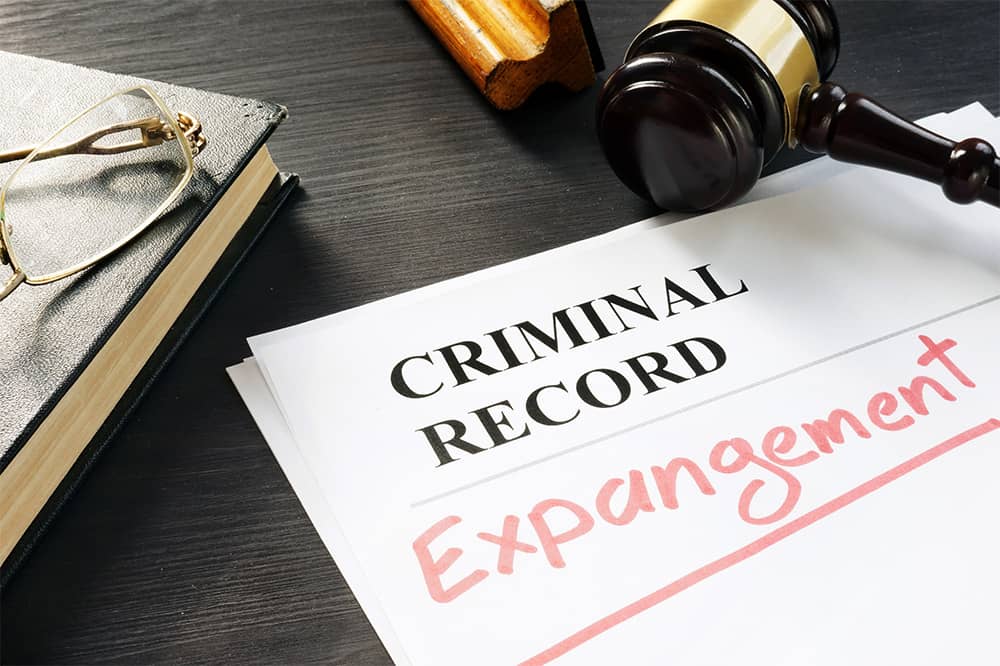If My Record Is Expunged, Can I Answer ‘No’ to the Conviction Question on an Application?

If you have an expunged (or sealed) record in Ohio, you may be wondering what that means for your future. Do you still have to disclose your conviction? Can you legally say it never happened?
These are important questions. Having your record sealed or expunged can give you a fresh start, but the rules about what you must reveal and to whom can be confusing.
The key is understanding what sealing or expungement does—and doesn’t do. Once you know your rights and obligations, you can confidently move forward without your past holding you back.
What is an Expungement?
In Ohio, you’ll often hear the terms expungement and sealing. While they’re closely related, there’s a difference:
- Sealing a record means it’s hidden from public view. Most employers, landlords, and licensing boards can’t access the details, though certain agencies (like law enforcement) still can in limited situations.
- Expungement goes one step further by ordering the destruction or deletion of the record. However, Ohio law now allows the Bureau of Criminal Identification and Investigation (BCI) to maintain a confidential record of expunged convictions exclusively for law enforcement hiring purposes. So even though your record is largely treated as if it never existed, BCI may still keep it in specific, narrow circumstances.
To be eligible for sealing or expungement, you generally must:
- Complete your sentence (including probation and payment of fines or restitution).
- Wait the required amount of time—which can vary:
- Third-Degree Felonies: You may apply to seal after 3 years; to expunge, you typically wait 10 additional years after you become eligible to seal.
- Fourth- and Fifth-Degree Felonies & Misdemeanors: You may apply to seal after 1 year; misdemeanors can be expunged after 1 year from final discharge, while felonies require a longer wait for expungement.
- Minor Misdemeanors: You may apply to seal and expunge after 6 months.
- Not have disqualifying offenses, like first- or second-degree felonies, most violent crimes, and certain sex offenses.
- Have no pending criminal proceedings and be able to show you’ve been rehabilitated to the court’s satisfaction.
If you meet the criteria and the court grants your request, it will order your record sealed or expunged. For most public and private inquiries, it will be as if the offense never occurred.
Do I Have to Disclose an Expunged Conviction?
So, what does this mean when someone asks about your criminal history? In most cases, if your record has been sealed or expunged, you can legally answer “no” when asked if you have been convicted of a crime.
Ohio law explicitly states that once a record is sealed or expunged, “the proceedings in the case … shall be considered not to have occurred.” That means that for the majority of jobs, housing applications, loans, or educational programs, you do not have to reveal the offense.
Exceptions to Keep in Mind
However, there are specific exceptions:
Schools & Childcare
If you’re applying to work as a teacher, school bus driver, or daycare worker, the Ohio Bureau of Criminal Investigation can disclose sealed or expunged records to the employer. This practice is authorized by Ohio Rev. Code §§ 3319.39, 3319.391, 3319.392, and 5104.013, which require comprehensive background checks for school districts and childcare providers.
Law Enforcement & Corrections
According to Ohio Rev. Code § 2953.32(D)(5), BCI is permitted to maintain a confidential file of expunged convictions specifically to decide someone’s qualifications for law enforcement positions. If you’re seeking employment with a police department, corrections facility, or similar agency, your sealed or expunged record may still be disclosed to determine your eligibility.
Professional Licensing Boards
Various boards—such as the Ohio Board of Nursing under R.C. § 4723.09, or the Supreme Court of Ohio for attorney admissions under Gov. Bar R. I § 11—may require disclosure of any past convictions, including those sealed or expunged. The same goes for other licensed fields (e.g., pharmacy, healthcare), where background checks can be wide-ranging.
Future Legal Proceedings
If you end up in legal trouble again, prosecutors and judges may review your previously sealed or expunged record for sentencing, bond decisions, or other court matters. Ohio Rev. Code §§ 2953.32(D)(2)(b) and 2953.34(D) clarify that, while your record is treated as if it never happened for most purposes, it can still be considered by the court in subsequent proceedings.
However, outside of these situations, answering “no” to conviction questions is not considered lying or fraud—it’s your legal right.
Get the Fresh Start You Deserve
Sealing or expunging a criminal record is a powerful step toward leaving your past behind and moving forward with your life. It can open doors to education, employment, and housing opportunities that might have been out of reach before.
Still, it’s crucial to know exactly what the process does—and doesn’t—cover. Understanding your rights and responsibilities will help you make the most of your second chance.
If you’re considering sealing or expunging your record, or have already been through the process, I encourage you to speak with our experienced Ohio expungement attorneys. We can evaluate your case, make sure you understand how the law applies, and help you take full advantage of your fresh start.
You deserve to build the future you want, without a mistake from your past holding you back. If you’d like to discuss your options, please don’t hesitate to contact us at Botnick Law Firm for a confidential consultation. We’re here to help you leave your conviction behind for good.



